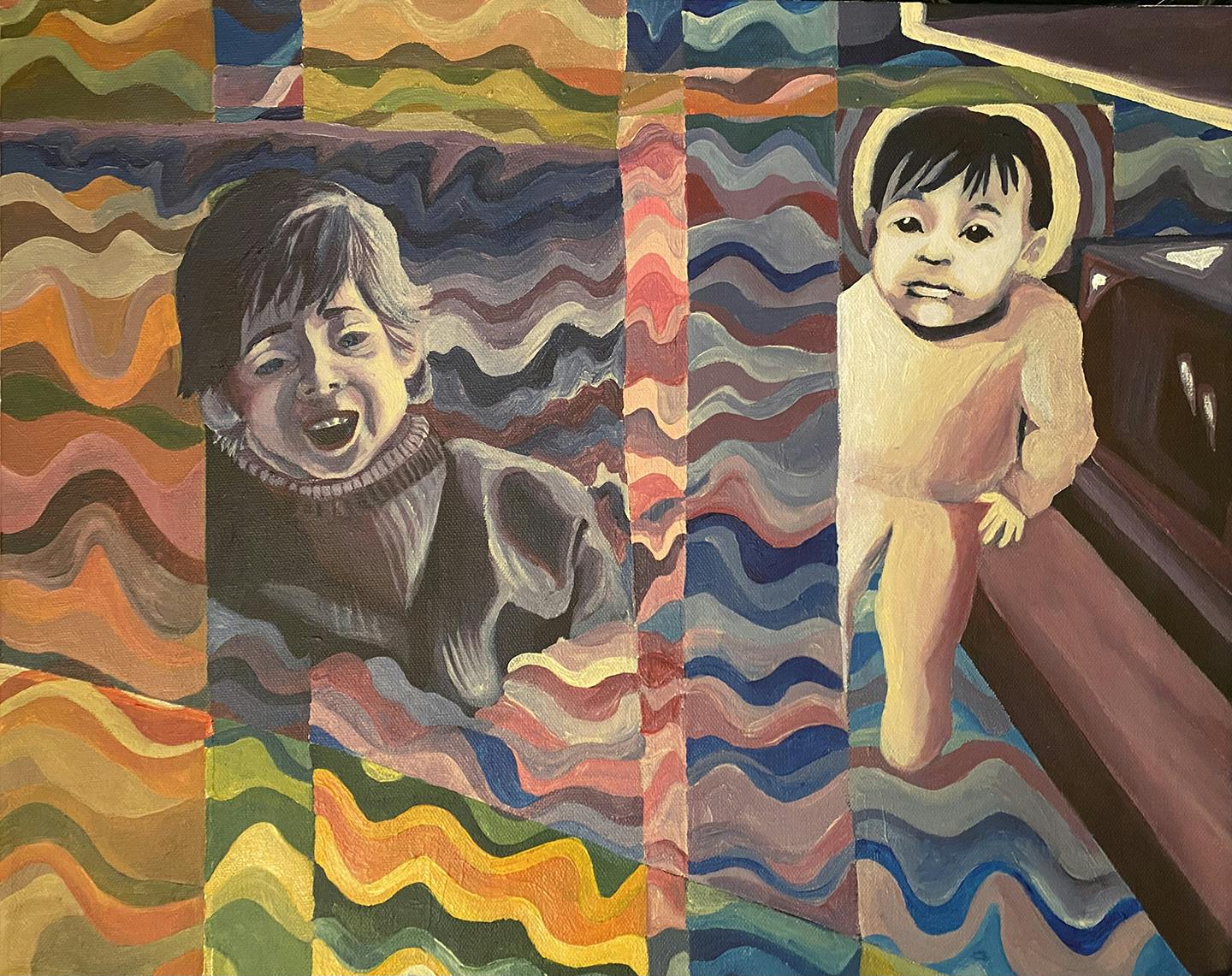Learn to Use the Tools for Change
Eugene Lang College of Liberal Arts
During an internship with the NYC Mayor’s Office of Immigrant Affairs (MOIA), Cece Deming-Bernstein once observed a group of immigrants and their families being welcomed by city government officials at the Port Authority Bus Terminal in Midtown Manhattan.
“It was tough seeing a lot of people just waiting and waiting for nothing, and knowing that for many of them, there was nowhere else to go,” Deming-Bernstein said. “There were lots of kids, too, so that was pretty hard for me to witness.”
Deming-Bernstein couldn't help but reflect on the actions of several U.S. politicians who have exploited immigrants by shuttling them around the country in a cruel show of political grandstanding. As a result, last year, DC District Attorney General Karl
Racine began investigating whether immigrants have been victims of human trafficking. Bearing witness to the plight of immigrants solidified Deming-Bernstein’s belief that it is crucial to establish a federal safeguard that protects them from becoming
unwitting participants in political maneuvers.
Deming-Bernstein expects to graduate in May 2024 with a BA in Politics and BFA in Integrated Design, earned at Eugene Lang College of Liberal Arts and Parsons School of Design. The
BA/BFA dual-degree program has offered Deming-Bernstein opportunities to delve into her interests from multiple angles. Her work has been influenced by her internship experience with MOIA and by her study of the city’s independent
provision of crucial services in the absence of federal aid.
Another subject Deming-Bernstein has explored is children’s rights. A classroom discussion in a studio course taught by Robert Rabinowitz inspired her to create Unhoused, a children’s book she wrote and
illustrated about a young girl learning about homelessness. Deming-Bernstein also presented a research paper on ethical eating and designed a personal zine centered on children’s rights called Thank You Younger Me. Accompanying the zine are two original
paintings on the same subject.
“I really want to work on bringing empathy back to politics and to art and design,” Deming-Bernstein says.

Parents
Deming-Bernstein has discovered that children’s stories have a remarkable ability to evoke strong emotional responses in adult readers, including people in positions of influence who can bring about change. In Unhoused, the moon comes to visit a young
girl named Angel after she is disturbed by seeing someone sleeping on the street. Deming-Bernstein believes that gut emotional responses such as Angel’s can lead to efforts to ensure the well-being of everyone. The moon takes Angel on a nighttime
journey, explaining why people lose access to shelter. The moon tells Angel that feelings of sympathy alone do not improve the lives of others. Instead, the moon encourages Angel and readers to take the initiative to educate family and friends, as
even small individual actions can foster positive transformations in society. Deming-Bernstein also hopes her book will provide solace and affirmation to unhoused children.
In the course of her internship, Deming-Bernstein witnessed phenomena she was learning about at The New School. These experiences gave her a deeper understanding of the complexities of immigration, allowing her to formulate potential solutions on her
own. At MOIA hearings, for instance, she noted the lack of childcare services and of resources related to sexual and reproductive health, issues she believes are connected with personal autonomy and consent.

Real Magic
Deming-Bernstein’s fellowship paper, titled “Consent Beyond Sex,” was motivated by her desire to focus on the reproductive rights of immigrants. She also chose to address the subject of immigrant children’s rights for her capstone paper, “It Takes Recognition
from a Nation to Raise a Child.”
Deming-Bernstein came to believe that despite the sincere efforts of dedicated people, bureaucracy, limited resources, and conflicting political interests often impede progress on issues like provision of services to immigrants. She sees recognition by
government workers of commonalities with the people they serve as a way to strengthen and deepen their own empathy, enabling them to better meet the specific needs of immigrants and other communities.
Deming-Bernstein herself is currently developing a map designed to improve healthcare accessibility for immigrants, and hopes to see more initiatives like this one developed in the near future.
“There’s a saying that if the provision of resources is geared toward those who face the greatest oppression, it will mean that basically everyone else will be able to access that,” Deming-Bernstein said. “I feel that there is a similar kind of situation
with children and undocumented immigrants. If we can figure out as a society how to provide fully for that population, everyone will end up being taken care of.”